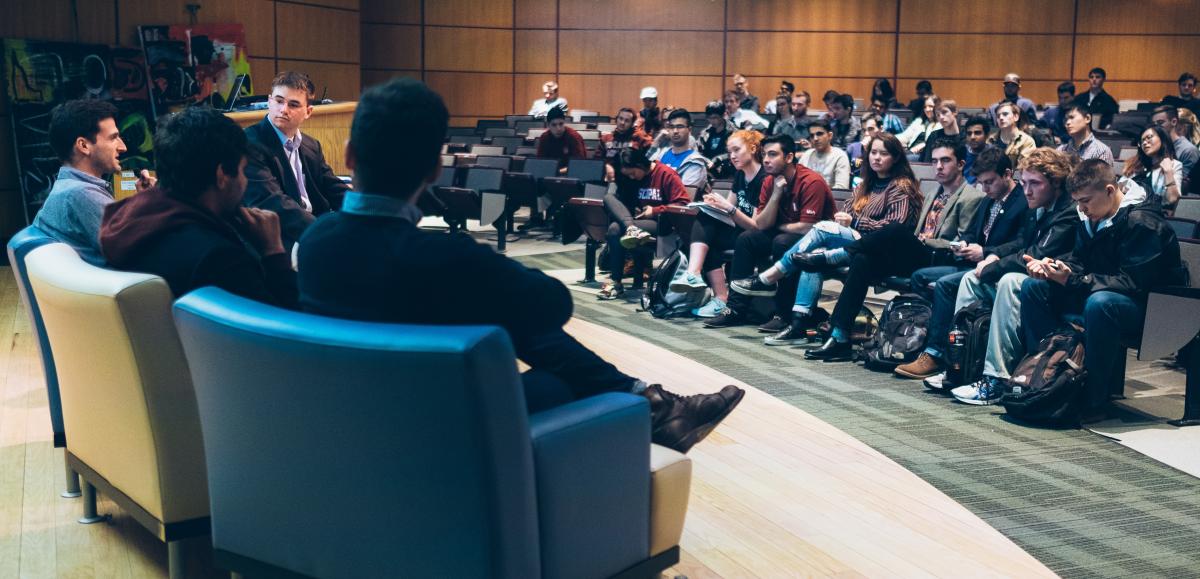Uber Panelists Advocate Creative Disruption
May 5, 2016

“We fill a remarkable number of gaps in driving and transportation markets,” Uber executive and Isenberg finance graduate Matthew Powers ’08 told 90 students at an April 11 Entrepreneurship Club gathering. The panel of three Uber executives explored the company and its growing economic and sociocultural impact. Besides Powers, who is Uber’s general manger in Connecticut, the panelists included Ben Stein ’08 (also an Isenberg finance grad) and Nick Matthews ’11 (a political science grad). Stein is Uber’s lead operations manager in Connecticut; Matthews, whose title is senior manager, is based in Greater Boston.
Uber, the panelists agreed, has been especially disruptive to the taxi business. But its culture of creative problem solving wields broader turf, seeking out and filling a wealth of seams in the transportation services industry. These include transportation for seniors and the disabled, the distribution of local goods and services, and market-driven rides to high-demand events like concerts.
With dynamic pricing attuned to demand and time constraints, “we’re more convenient, flexible, and safer than taxis,” emphasized Powers. “We consider and treat our drivers as customers, just like our riders,” he continued, citing the company’s empowerment of drivers through discounts on their vehicle purchases, flexible work hours, and healthcare benefits.

Another asset for consumers, the panelists added, is Uber’s competitiveness as a substitute for car ownership (especially ownership of a second or third car). Given the brand’s transparent pricing and its prowess in getting cars to consumers promptly (with the option of rider pooling), riders can financially evaluate whether relying on Uber or purchasing an additional car makes more sense. Driverless autos are also in Uber’s future, noted the visitors, who cited the company’s research partnership with Carnegie Mellon University.
Creativity Unlimited
“Our city teams still own their markets,” emphasized Matthews. “Uber respects their deep knowledge of those markets; it wants them to experiment, to try new things,” he said. “If they work, it’s awesome. If they don’t, they need to try something else. If you’re bored at Uber, you’re not doing things right.
“We’re about cool people solving cool problems,” added Stein. Powers concurred. “We’re in 400 cities and towns. In a university town like New Haven, we constantly ask ourselves what’s interesting to exploit.” When the panelists asked their audience who had used the service, nearly every hand went up. It was a testament to Uber’s expanding footprint, and perhaps future disruption of the auto industry, which has enjoyed a relatively unchallenged hold over American life and culture. Thanks to Uber that influence could be waning.